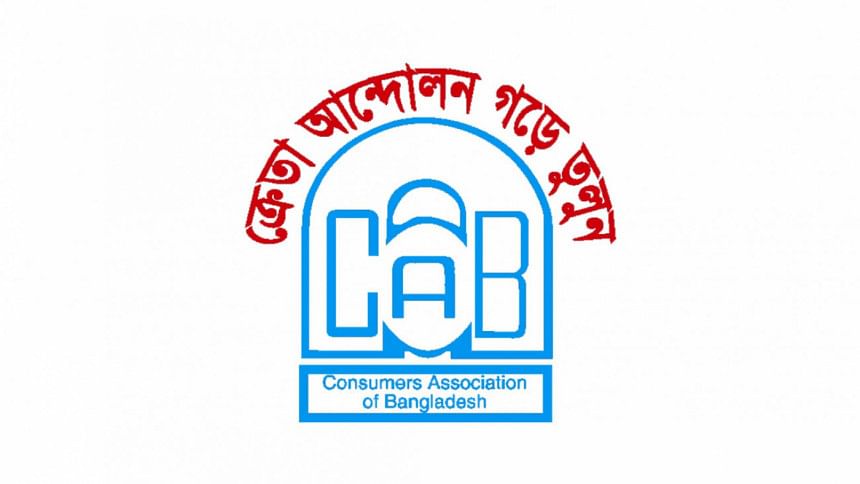Proposed price hike of power, gas: CAB comes up with alternative solutions

Consumers Association of Bangladesh (CAB) yesterday proposed alternatives to hiking gas and electricity prices and urged the government not to increase the tariffs.
However, the state minister for power, energy and mineral resource said the government will adjust the prices in such a way that those remain "affordable" for consumers. He said Prime Minister Sheikh Hasina will make the final decision in this regard.
The CAB's proposal and the state minister's response came at a "Citizens' Meeting", organised by the CAB, at the Jatiya Press Club yesterday.
Bangladesh Energy Regulatory Commission (BERC) recently held public hearings on hiking retail price of gas and bulk price of electricity. The BERC's technical committee has recommended raising the gas price by 20 percent on average and electricity price by 58 percent on average.
The commission, however, is yet to announce any decision in this regard.
At the meeting yesterday, CAB, a platform to protect consumers' interests, unveiled an "energy transition policy" for the government's consideration.
Speaking at the event, CAB Senior Vice President Prof M Shamsul Alam urged the government to allocate Tk 12,600 crore as annual subsidy to the energy sector, which is now around Tk 10,500 crore.
"Along with providing subsidy, the government should take initiatives to cut the predatory expenditure of Tk 6,588 crore in this sector. If this can be achieved, then the per unit gas price will come down to Tk 9.69 on average, which is now Tk 9.70," he said.
He said the government can reduce the power production cost by withdrawing the hiked price of furnace oil and thus save Tk 8,102 crore.
In March this year, the government hiked the price of furnace oil to Tk 74 a litre, up from Tk 60 in December last year.
Shamsul said the government can save another Tk 10,321 crore by reducing dependency on the privately-owned quick rental plants and single-cycle power plants.
He said the government can save at least Tk 16,279 crore by withdrawing the recently imposed taxes on the import of petroleum, reinstating the tax break on the import of petroleum, and by importing furnace oil through the state-run Bangladesh Petroleum Corporation instead of private importers.
Nasrul Hamid, state minister of power, energy and mineral resources, said, "We are not increasing energy and electricity prices. It's the job of the Bangladesh Energy Regulatory Commission. We wanted adjustment of the prices. We are trying to keep the prices affordable for the consumers.… Moreover, it is the prime minister's ministry and she will make the decisions.
"If we didn't collect revenue, the question of giving subsidy would not have arisen. We collect revenues in one hand, and give subsidies on the other to only those who need it. Otherwise, we use the revenue for development purposes," he said.
Architect Mubasshar Hussein said, "We didn't try to explore gas in the Bay of Bengal [after winning the legal battle with Myanmar over the maritime boundary dispute in the Bay of Bengal], but Myanmar and India have been exploring gas in their sea territories."
He said Bangladesh reached the highest electricity production capacity, but failed to provide uninterrupted power to consumers. He said he had to spend Tk 6,000-9,000 a month for buying generator fuel as he didn't get uninterrupted electricity at his house.
Mubasshar, also the convener of the National Committee for Formulating Energy Transition Policy, emphasised on using renewable energy, including solar power.
Former Geology Professor of Dhaka University Badrul Imam said, "We are importing LNG instead of putting enough emphasis on exploration of new wells. Only five percent LNG import from the international spot market is increasing the government's total expenditure."
About the exploration of gas in the sea, Nasrul said it is not something that a decision is made today and exploration of gas starts tomorrow.
"We always had a gap of 700-800 mmcfd (million cubic feet daily) gas between the demand and supply and that's why we started importing the energy."
He said it is true that Bangladesh has a daily electricity production capacity of around 25,000 megawatts, but it cannot produce more than 16,000MW.
"There is no overcapacity here. Of the total production capacity, we need 10 percent derated capacity and 10 percent for various services. You always talk about capacity charges. Basically, it is the government's cost for paying the rent of a power plant. The owners of the rental power plants need to pay the bank loan interest and pay their staffers," he added.
Dhaka University professors MM Akash and Mohammad Tanzimuddin Khan, and Bangladesh Textile Mills Association Director Razib Haider, also spoke at the event, chaired by CAB President Ghulam Rahman.

 For all latest news, follow The Daily Star's Google News channel.
For all latest news, follow The Daily Star's Google News channel. 




Comments